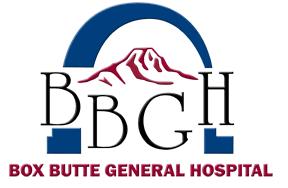The fiduciary responsibilities of the Box Butte General Hospital Administration and Board of Trustees and the hospital’s desire to meet the needs of area residents was discussed in depth Wednesday morning during a special meeting on whether or not to participate in the Department of Defense regional Tricare program for Veterans. In the end, the Trustees voted to absorb losses in support of Veterans dependent on Tricare reimbursement, at least until it is determined how large an impact those losses will be for the hospital.
Blue Cross Blue Shield of Nebraska has been the Department of Defense contractor for administration of the regional Tricare program for many years. Early in March of this year, BBGH was informed the program contract would be taken over by United Healthcare (UHC) as of April 1. UHC’s proposed hospital reimbursement for in-patient care would be 101 percent of Medicare Critical Access Hospital (CAH) cost minus 10 percent. In addition, with no year-end reconciliation of actual costs of the current year allowed. The proposed reimbursement for outpatient care would be 100 percent of Medicare CAH cost minus 10 percent, again with no year-end reconciliation of actual costs. The proposal for clinics operated by the hospital would be 100 percent of Medicare Physician Fee Schedule minus 10 percent, with no recognition of the hospital’s current cost-based Rural Health Clinic reimbursement status and no recognition of its CMS 15 percent Method II add-on for ED physicians and CRNAs. The fee schedule also included a 15 percent reimbursement reduction for mid-level providers.
Because of the substantial decrease in reimbursement and the limited time frame allowed to make a decision, the hospital and affiliated clinics originally declined to sign with UHC because it was obvious the proposed reimbursement didn’t cover actual costs. The hospital notified veterans by letter of the decision. The board wanted to discuss the matter at the regular meeting Monday, March 25, however the rules governing when agenda items can be added prevented the Tricare matter from being addressed; hence the special meeting held Wednesday morning.
CEO Dan Griess presented the fiduciary reasoning behind the original decision as discussed above. He added, “The federal government covers the care for Medicaid patrons at a higher rate than what the federal government is proposing to cover in the case of Veterans. That was the government’s decision, not ours. Due to cuts to the Department of Defense budgets, they are now shifting the costs of healthcare to either hospitals and other healthcare providers or to the active and retired soldiers and their families. Healthcare services are expensive and someone has to pay for it.” He also informed the board that he has checked with area hospitals to see how many were participating in the Tricare program. “We only found six hospitals within a 250 mile radius of Alliance that are officially in network providers as of April 1st.”
Board Chairman David Briggs asked the question, “At what point do we draw a line in the sand on these essentially unfunded mandates we get from the federal government? A hospital has to be profitable. While we want to be as supportive as we can to the needs of our community, if we continue to absorb losses (not only in this program, but in cuts in Medicaid and Medicare coming through the Affordable Care Act and sequestration), then we’re going to get to a point where services are going to be reduced, possibly along with staff.”
Trustee D.N. “Cork” Taylor, DDS, commented on the quandary the Tricare program has put the hospital in. “I’ve had many calls from veterans and families,” he said. “It’s extremely emotional. Here’s where I’m at… I can face west and talk for 30 minutes on why we shouldn’t do this, and then face east and talk for 30 minutes on why we should do this. Right now, I’m facing east. I would like to see us try this contract and see what it does to our bottom line.”
Trustee Joni Jespersen asked Mr. Griess if there was an option to begin the program with UHC, but then six months down the road be able to withdraw if it significantly impacts profitability. “I can see that if no one else is signing this, and we’re the only available care, we could certainly become a place (veterans) will seek out, having a further impact on our operations.” Mr. Griess said, “The contract is referred to as an ‘evergreen’ type of contract where there is no renewable annual date, or if you are in it your in it for life type of provision. There are exit provisions, though lengthy.”
Dr. Taylor made a motion to participate in the UHC Tricare program to evaluate its impact on hospital operations. Trustee Ted Bohlen seconded the motion, saying he “didn’t want to kick the can down the road like Congress does.” The board approved participating in the Tricare program.
Mr. Griess concluded the meeting saying he will soon be attending an American Hospital Association conference in Washington D.C. “Needless to say, this will be one of my topics for discussion at that conference and with congressional aids.”

